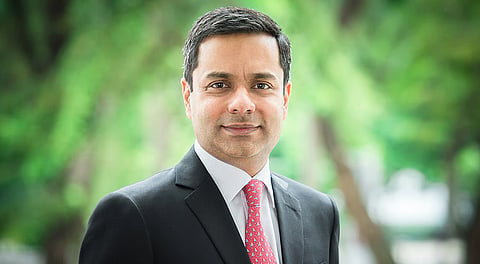
- Latest Legal News
- News
- Dealstreet
- Viewpoint
- Columns
- Interviews
- Law School
- Legal Jobs
- हिंदी
- ಕನ್ನಡ

This thing called air,
I just can’t breathe through it.
This thing called air,
We must get ‘round to it
We’re not ready
Crazy little thing called air.
There is a rhythm to Delhi’s winter that no one asked for. It starts slowly, settles heavily, and before long the city finds itself moving to a beat dominated by monitors flashing numbers no one should grow accustomed to. It is a strange irony that something as light as air now carries the weight of an unwanted refrain. If Freddie Mercury once sang of a “crazy little thing” that overwhelms unexpectedly, Delhi today knows a version of that sentiment all too well, only here the frenzy is not of love but of particulate matter.
Rewind three decades to the mid-1990s. Industrial units, thermal power and vehicular emissions all came together to create worryingly toxic air. In the face of adversity, the courts were determined to direct harsh measures. Intervening in MC Mehta v Union of India, a bench led by the then Chief Justice AM Ahmadi produced a jurisprudential moment that reset Delhi’s environmental trajectory by striking the pollution problem at its root. Leaded petrol was phased out, two-stroke engines received pre-mixed fuel, and commercial vehicles older than 15 years were removed from the roads. The boldest stroke came in the form of directives pushing polluting industries out of the city. This directive required courage in a decade when India was only beginning to dip its toes in the waters of liberalisation. However, it ensured that pollution was significantly mopped up from the city, at least for the foreseeable future.
Even after the fervour of the 1990s, the courts did not flinch from speaking with the force of principle, even when their words cut deep into both industry and the collective heart of the people. Such was the order passed by Justice Sikri in Writ Petition No. 728 of 2015, which sharply drew a quiet curtain over the sale of fireworks in Delhi–NCR, daring to curb a cultural ritual that had long set the Diwali sky ablaze. However, the appetite for such measures has thinned with time. In a year when the city chokes in a gas chamber, the inability to resist populist sentiment led the Court to soft-pedal and permit the bursting of green firecrackers in a bid to achieve “moderation”. Even on the legislative front, the retreat is unmistakable. A nation that once lived to dream of an all-electric fleet by 2030, slowly relinquished that vision, conceding that it was “very tough to change rules and regulations, so let there be just actions.”
This shift in institutional resolve is troubling given that the particulate matter concentration is reportedly at least 40% higher than what it was in the 1990s. The spectre of losing more than eight years of life expectancy dangles menacingly over every resident, while businesses struggle to recover from the nightmare of losing Rs 2500 crore in the span of just one month. To be sure, the judiciary has not turned away from the crisis. Justice P. S. Narasimha’s recent reminder that masks are no longer enough signals a clear recognition that stronger measures must be set in motion. Yet, despite the scale of the calamity, the efforts undertaken to rescue this city’s air remain heartbreakingly short of what the moment demands. If we continue to rely on hesitant interventions, new sources of pollution will continue to sprout like hydra heads, regenerating faster than we can hope to restrain them, until the hour comes when even the sternest cure will find no breath left to save.
An air quality screen flashing 500 should be enough to stop a city in its tracks. Clean air cannot rely on intermittently imposed Graded Response Action Plans alone. It demands a union of legislative resolve and judicial vigilance all year round. The failure of the recent cloud-seeding experience demonstrate the need for future solutions to be anchored in timing, science and scale. India must turbocharge policies, pushing for sharper incentives and quicker infrastructure roll-out to curb the menace of air pollution. In parallel, enforcing real-time emissions monitoring at industrial units, and choking the supply of dirty fuel can cut pollution at its source. And if errant behaviour leads to the smog swallowing the daylight, the judiciary must stand ready to ensure that the policies move beyond paper and into action.
Targeted measures must be pursued with the same clarity and courage as they once were, even when they are commercially demanding or politically inconvenient. Today’s numbers may blare like alarms, but alarms are built to awaken, not to defeat. We are part of a growing country, yet our capital means little if it cannot buy us the right to breathe. If we seek to stand confidently before the world, then this is a battle that we must take on now.
Nakul Dewan is a Senior Advocate and King’s Counsel.